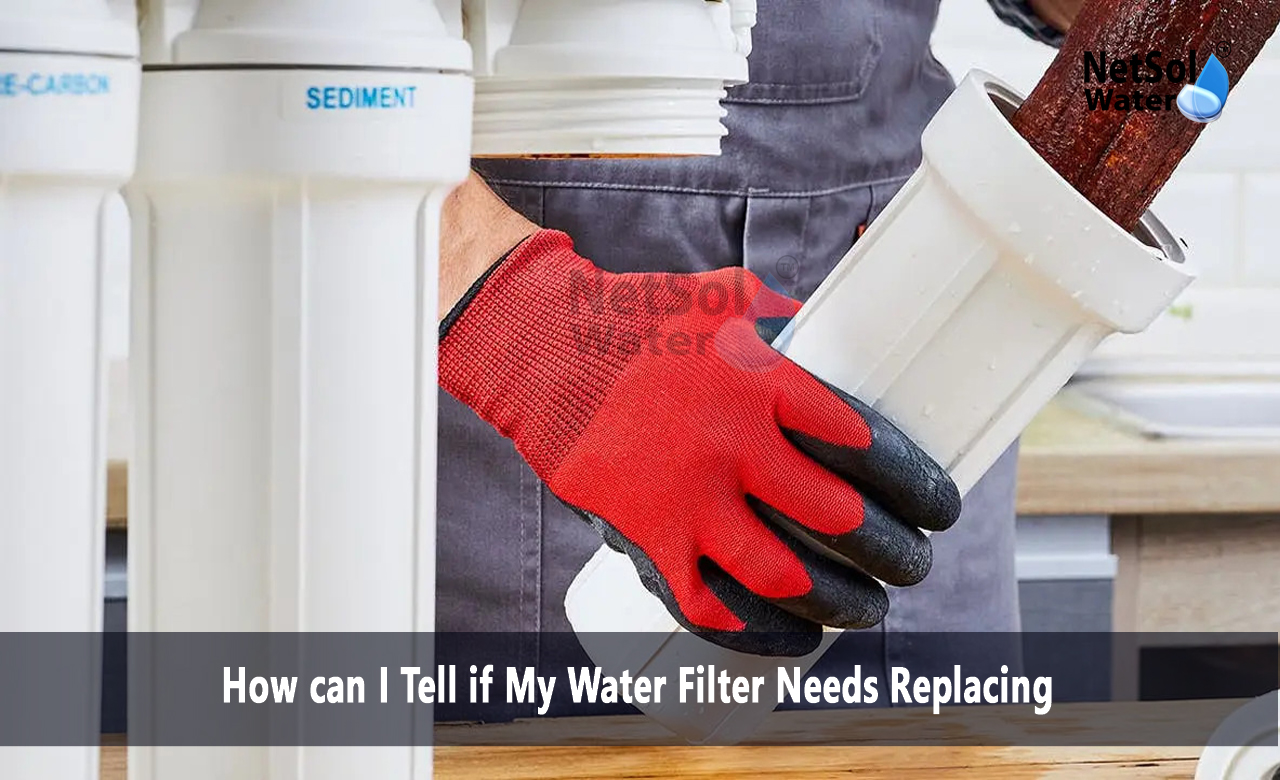How can I Tell if My Water Filter Needs Replacing?
Every drop of clean water matters for your health. Water filters act as guardians that protect you from harmful contaminants. Just as industrial RO plants need regular upkeep to function well, water filters in our homes require proper maintenance. This blog will help you understand when to replace your water filter - a critical component that ensures the purity of your drinking water. The increasing complexity of water treatment systems, from large effluent treatment plants to household filters, makes it essential to know the signs of filter deterioration. Poor filter maintenance can lead to contaminated water, which poses health risks to you and your family. Understanding these signs will help you maintain clean water quality similar to what commercial RO plants achieve on a larger scale. This knowledge becomes even more important, considering that water quality standards continue to become stricter. A well-maintained filter not only provides safe drinking water but also extends the life of your filtration system.
Filter Lifespan and Performance
The durability of water filters depends on several factors that affect their performance. Most water treatment professionals who work with sewage treatment plants understand that filter effectiveness decreases over time. This happens due to the accumulation of impurities that the filter removes from water. The quality of your source water plays a major role in determining how long your filter will last. Water with high sediment content or excessive chemical contamination will clog filters faster than cleaner water sources.Let us examine some key aspects that influence filter lifespan:
Water Usage Patterns
Your household water consumption directly impacts filter life. A family of four typically uses more water than a single person, which means their filter works harder and needs more frequent replacement. Heavy water usage during certain seasons can also accelerate filter wear.
Source Water Quality
The type of contaminants in your water supply affects filter performance. Areas with hard water or high mineral content often require more frequent filter changes. Industrial zones near effluent treatment plants might have different water quality challenges that impact filter longevity.
Filter Type and Design
Different filter designs handle varying amounts of water. Basic sediment filters might need replacement sooner than advanced carbon filters. The technology used in industrial RO plants has influenced home filtration systems, making them more efficient, but they still require regular maintenance.
Recognizing Signs of Filter Deterioration
Your water filter communicates its condition through various signals. Learning to read these signs helps maintain optimal water quality. Water treatment experts who manage commercial RO plants monitor similar indicators to ensure proper filtration.Let us explore the common signs that indicate filter replacement:
Changes in Water Flow
A noticeable decrease in water pressure often signals filter clogging. When water takes longer to fill your glass the filter might be reaching its capacity. This reduced flow happens because accumulated particles block the filter pores.
Taste and Odor Changes
Fresh filters remove unwanted tastes and smells from water. When these unpleasant characteristics return, filter performance declines. Chlorine taste or musty odours suggest your filter needs attention.
Visual Water Changes
Clear water should remain clear. Any cloudiness or floating particles indicate potential filter problems. Sometimes, you might notice small black specks, which could be carbon particles from a deteriorating filter.
Maintenance Schedule and Best Practices
Creating a maintenance routine ensures consistent water quality. Just as sewage treatment plants follow strict maintenance schedules your home filtration system needs regular attention.Let us review essential maintenance practices:
Regular Inspection Schedule
Set specific dates to check your filter condition. Mark your calendar or use phone reminders to stay on track. This proactive approach prevents water quality issues before they start.
Documentation
Keep records of filter changes and any problems you notice. This history helps identify patterns and optimize replacement timing. Note changes in water quality or unusual filter wear.
Professional Assessment
Sometimes, getting expert evaluation helps, especially for complex filtration systems. Water treatment professionals can provide detailed analysis and maintenance recommendations.
Conclusion
Your water filter safeguards your health by providing clean drinking water. Understanding when to replace it ensures continuous protection from contaminants. For expert guidance on water filter maintenance or to learn more about advanced filtration solutions, contact our water treatment specialists. Our team brings experience from working with various systems, from household filters to commercial RO plants. Schedule a consultation today to discuss your water filtration needs and ensure your system performs at its best.
Netsol Water is Greater Noida-based leading water & wastewater treatment plant manufacturer. We are industry's most demanding company based on client review and work quality. We are known as best commercial RO plant manufacturers, industrial RO plant manufacturer, sewage treatment plant manufacturer, Water Softener Plant Manufacturers and effluent treatment plant manufacturers. Apart from this 24x7 customer support is our USP. Call on +91-9650608473, or write us at enquiry@netsolwater.com for any support, inquiry or product-purchase related query.



